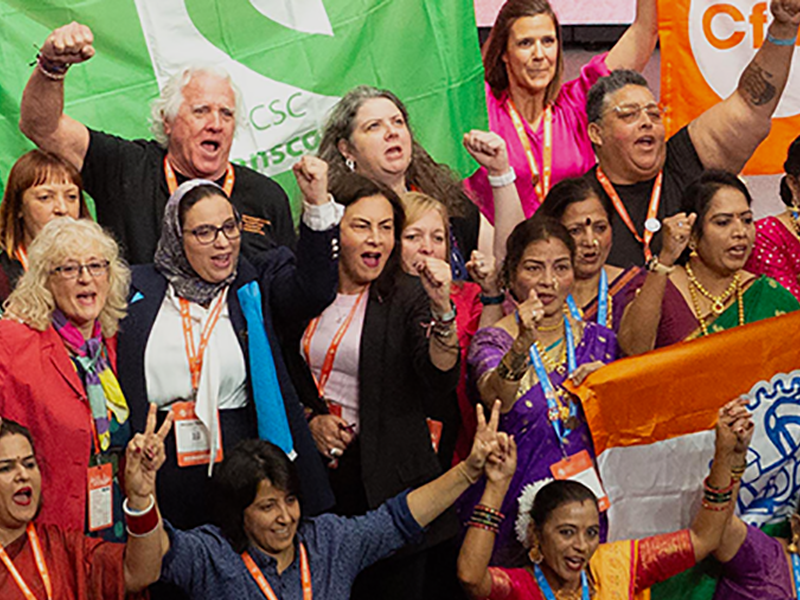Stephen Cotton, ITF general secretary says “I am in India supporting our affiliated unions, including the All India Railway's Federation that represents 900,000 railway workers. We are here conducting educational workshops and training programmes for union members. It’s our ambition to provide the skills that will enable members to negotiate proper working conditions and employment rights”
The framework for the deployment of technology is being developed alongside a process of de-regulation, which also has known impacts on inequality and quality of work. The Indian economy is dominated by informal forms of work (like contractors), in the areas of transport and logistics. De-regulation threatens to expand the disorganised economy further. There is potential for India to experience a double whammy of negative impacts as a result.
Elsewhere in the world concerns over the social impact of technology are a fundamental part of ongoing policy development. In many countries and international institutions, such as the OECD, trade unions are part of the discussion about mitigating these impacts. Workers, as experts in their work processes can be great allies in the development of such policies. However, the Indian government appears less concerned with regulating new technologies, and more concerned with de-regulating the transport sector as a whole. It is clear there is an argument to be made for allowing regulatory space for new technologies to thrive. However, without a corresponding social and labour strategy this will, almost certainly lead to job losses and job insecurity.
India’s current transport policies appear aimed at transforming airports, rail, logistics and ports through FDI and new technology. Experience in other countries shows that the deployment of new technologies intensifies labour processes and also causes some job losses. The reduction of check-in staff at airports is an example. New jobs are created but there is usually a time lag.
New technology is not always the solution it is assumed to be. Experience from Rotterdam shows that human operated ports are still more productive than automated ones. In fact, in many areas it seems technology works best to enhance a skilled human workforce. In other areas, technology still cannot perform all the necessary operations, meaning that a human presence remains necessary – in train cabins for example.
It is heartening to see the important role that rail is being given in India’s development plans, particularly to the introduction of new safety and maintenance systems. Railway is the single largest employer in the country. However, experience in other countries suggests that expensive foreign technology is not always necessary. In signalling, there are examples of older mechanical systems being adapted to function as efficiently as digital systems, for less investment and with far fewer job losses. The point here is that there should be a public discussion over which forms of technology are adopted and why. Technology is certainly part of the future, but it should not be at the expense of social injustices for transport workers.



